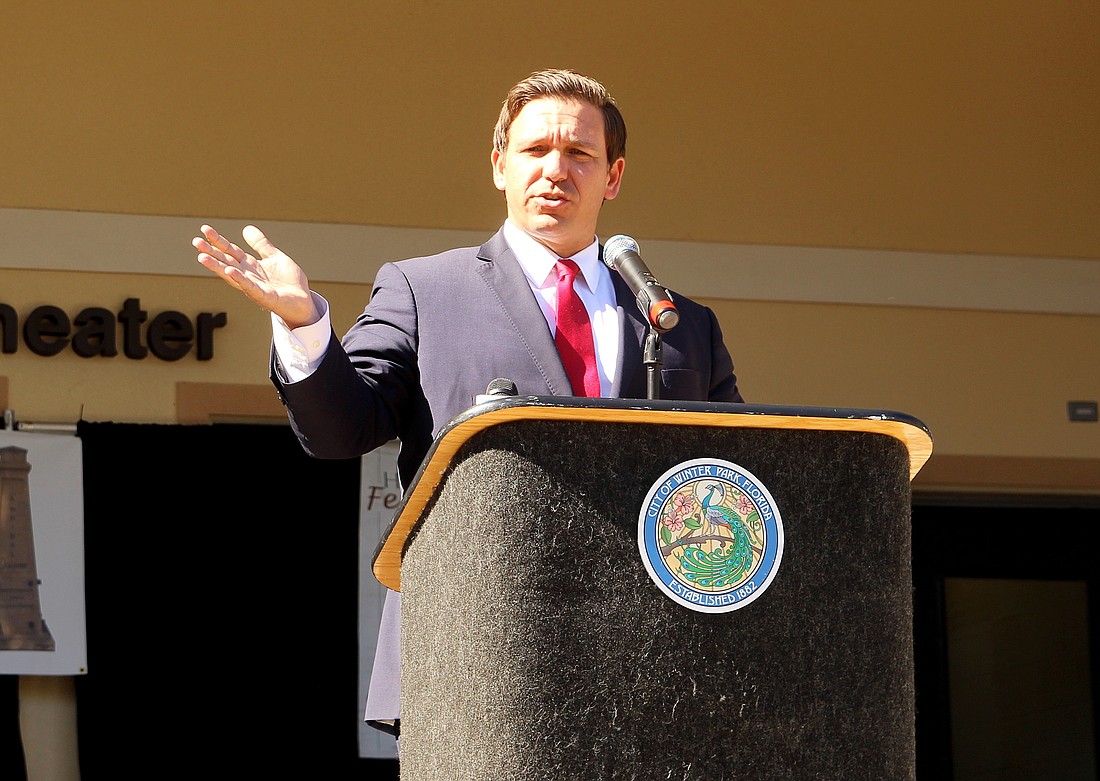- January 14, 2025
-
-
Loading

Loading

Following widespread speculation that SB-4C, which abolishes the Reedy Creek Improvement District, would raise property taxes in Orange and Osceola counties, Gov. Ron DeSantis on Friday, April 23, said that would not be the case.
DeSantis signed SB 4-C, along with two other bills, into law passed by the Florida Legislature during the April 19-21 Special Legislative Session.
"It is not the understanding or expectation for SB 4-C, abolishing independent special districts, to cause any tax increases for the residents of any area of Florida," DeSantis said in a press release about the signings. "In the near future, we will propose additional legislation to authorize additional special districts in a manner that ensures transparency and an even playing field under the law."
“People will (ask about Disney's) services and utilities," DeSantis said. "We're gonna take care of that. Don't worry. We have everything thought out. Don't let anyone tell you somehow Disney's going to get a tax cut out of this. They're going to pay more taxes as a result of this.”
DeSantis' remarks about tax implications come after mainstream media outlets and some Orange County officials reported county homeowners would face a sizable increase in property taxes.
"Reedy Creek collects about $105 million per year to operate services inside Reedy Creek," Orange County Tax Collector Scott Randolph wrote on Twitter. "This is on top of other taxing authorities it sets in. So Disney pays the same Orange County, local and state school taxes, etc., as all other properties inside Orange County.
"If Reedy Creek goes away, the $105 million it collects to operate services goes away," he said. "That doesn’t just transfer to Orange County because it’s an independent taxing district. However, Orange County then inherits all debt and obligations with no extra funds."
DeSantis also signed SB 2-C, which creates the congressional districts of the state through adoption of the U.S. Census of 2020 for use in redistricting.
He also signed SB 6-C, which amends SB 7072. That bill, passed during the 2021 Regular Session, addressed concerns related to social-media platforms, including provisions to which the social-media platforms must comply, prohibits the de-platforming of candidates for political office and prohibits social-media platforms convicted of or held civilly liable for antitrust violations from contracting with public entities. SB-6-C removes a theme park exclusion from the definition of social-media platform. This legislation will ensure that litigation against inconsistent censorship practices of social-media platforms and the de-platforming of politicians can be pursued and won in a court of law.